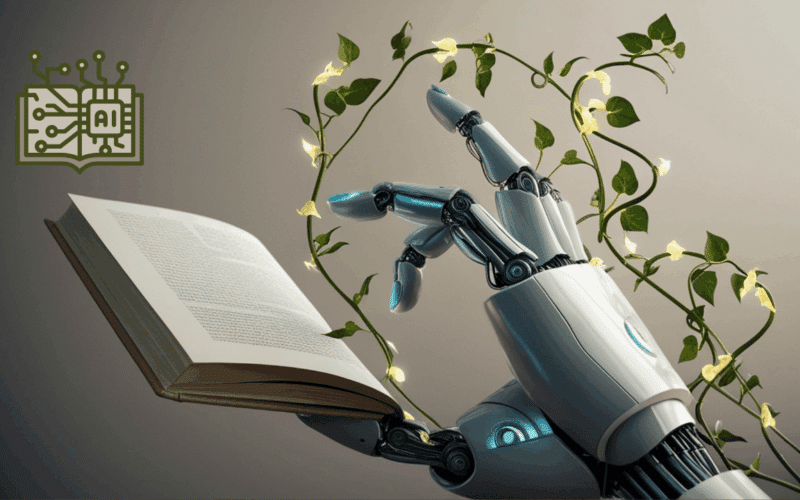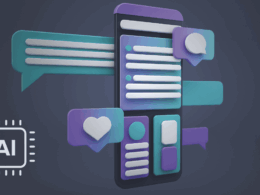Artificial intelligence used to live in science fiction. Now it writes emails, passes exams and helps run companies. The idea of artificial general intelligence, a system that can match or exceed human intelligence across most tasks, no longer feels like a distant fantasy. In this article, you’ll learn how to survive the singularity with the top 7 books that prepare you for AGI (Artificial General Intelligence).
For many people this is exciting and terrifying at the same time. You see headlines about AI taking jobs, disrupting politics and maybe one day becoming smarter than everyone you know. You want to be prepared, yet the noise makes it hard to know where to start.
That is where the right books are incredibly helpful. They slow the conversation down. They separate hype from real risk. So, show you not only what could go wrong, but also how we might steer things in a better direction.
This guide walks you through seven books that will upgrade the way you think about AGI and the singularity. Some focus on technical risk, some on ethics and policy, others on long term survival. Together they give you a serious foundation for the decades ahead.
Why You Should Study AGI Before It Studies You
You do not need to be a researcher or engineer to care about AGI. If powerful systems are deployed into economies, governments and everyday tools, they will affect your work, your money and your choices.
Reading deeply about Artificial General Intelligence AGI helps you:
- Recognize real capabilities instead of falling for marketing claims
- Understand why some experts are worried and others are optimistic
- See where your own skills and career could fit in an AI saturated world
- Spot bad arguments quickly, so you do not panic or get manipulated
You do not have to agree with every author in this list. In fact, the disagreements are part of the value. They show you the range of serious views behind the social media noise.
Quick Overview Of The 7 AGI Survival Books
| Book | Author | Main Focus | Best For | Key AGI Takeaway |
|---|---|---|---|---|
| Superintelligence | Nick Bostrom | Paths to superintelligent AI, control problems and long term risk | Readers who want the most detailed look at catastrophic scenarios | If we create superintelligence without strong control, we may not get a second chance |
| Life 3.0 | Max Tegmark | Scenarios for future AI, from utopia to dystopia, and what choices matter | Curious non specialists who want a broad tour of possibilities | The future is not fixed, human choices now shape how AGI is used |
| Human Compatible | Stuart Russell | How to design AI systems that stay aligned with human values | People interested in safety, ethics and policy | AI should be built around human preferences from the start, not bolted on later |
| Our Final Invention | James Barrat | Risks of unchecked AI development and arms race dynamics | Readers who respond to storytelling and interviews | Competitive pressure can push companies to deploy dangerous systems too early |
| The Alignment Problem | Brian Christian | Case studies of real AI failures and what they reveal about alignment | Practitioners, technologists and thoughtful general readers | Even narrow AI is hard to align, AGI will amplify those challenges |
| The Precipice | Toby Ord | Global catastrophic risks including AI, and how to reduce them | People who want to see AI risk in a wider context | Humanity is at a fragile turning point and has ethical duties to future generations |
| The Singularity Is Near | Ray Kurzweil | Exponential tech trends and a strongly optimistic view of AGI | Readers who like bold predictions and transhumanist ideas | Rapid progress can unlock enormous benefits if we manage the transition wisely |
1. Superintelligence: Thinking Clearly About Worst Case Scenarios:
If you want to understand why so many AI researchers talk about existential risk, “Superintelligence” is the place to start. Nick Bostrom takes a calm, methodical approach to a topic that often gets treated like science fiction.
The book asks three big questions.
- How could an AI system become superintelligent compared with humans.
- Once it reaches that level, what goals might it pursue.
- Can we design control mechanisms that remain effective even if the system becomes much smarter than us.
Bostrom does not claim that AGI doom is guaranteed. He argues that if there is even a modest chance of superintelligence combined with weak control, the downside is so large that it deserves serious attention.
How this book helps you survive the singularity.
- It gives you vocabulary to talk about concepts like “instrumental convergence” and “orthogonality” without sounding lost.
- It shows you why safety has to be built in early, not as an afterthought.
- It makes you cautious of simple solutions like “just unplug it” when discussing systems that may control infrastructure faster than humans can respond.
2. Life 3.0: Mapping Possible Futures AGI Books: Artificial General Intelligence
“Life 3.0” by Max Tegmark feels a bit like a guided tour of many AGI futures. Some are thrilling; others are deeply unsettling. Tegmark calls biological life “Life 1.0,” culture and software based learning “Life 2.0,” and a future where life can redesign both its hardware and software “Life 3.0.”
You will see thought experiments about AI controlled corporations, global governance, uploaded minds and space colonization. The tone is less grim than Superintelligence, yet the stakes remain very high.
What you gain from this book.
- A broader landscape of possibilities beyond simple “good or bad” outcomes
- A better sense of the political and social decisions that matter now
- A more nuanced view of what it means to “coexist” with AGI, rather than just survive it
If you like asking “what if” and exploring multiple scenarios, this book will keep your imagination busy while still grounding you in real science and engineering.
3. Human Compatible: Designing AI Around Humans
Stuart Russell is one of the most respected figures in AI research, and “Human Compatible” is his call to rethink how we design intelligent systems. Instead of building machines that simply maximize a fixed objective, he argues for AI that is explicitly uncertain about human values and constantly learns from us.
In other words, the safest systems are not the ones that stubbornly pursue a goal. They are the ones that treat human welfare as something to be discovered and updated over time.
Key ideas you will take away.
- Many current AI designs assume the objective is perfectly known, which is almost never true in real life.
- Misaligned goals are not only a future AGI problem; they already cause issues in today’s recommender systems and ad algorithms.
- Policy, regulation and technical design need to move together if we want AI that reliably serves human interests.
If you care about practical steps we can take in the next ten years, not only far future speculation, this book belongs high on your list.
4. Our Final Invention: Understanding The Arms Race AGI Books – Artificial General Intelligence AGI
James Barrat writes like a documentary filmmaker, which makes “Our Final Invention” both accessible and unsettling. He spends less time on equations and more on stories from labs, companies and think tanks that are pushing AI forward.
A central theme is the risk of an AI arms race. As more organizations realize the power of advanced AI, they feel pressure to move faster than rivals. In that environment, safety checks can look like a disadvantage, which increases the chance that someone deploys a system that is not ready.
Why this matters for you.
- You learn how economic and military competition can distort good intentions.
- You see how different actors, from startups to governments, think about AI advantage.
- You become more skeptical of narratives that treat speed as the only metric that matters.
This book does not offer a detailed technical solution, yet it does a good job of showing why social and political coordination are essential pieces of the AGI puzzle.
5. The Alignment Problem: Lessons From Today’s Systems
Brian Christian’s “The Alignment Problem” zooms in on current AI systems and the ways they already misbehave. From biased facial recognition to reward hacking in reinforcement learning, the book shows that aligning machine behavior with human values is hard even when the stakes are relatively small.
The lesson is simple. If we struggle to keep a content recommendation system from amplifying harmful material, we should be very humble about our ability to align a general intelligence that might eventually help run entire economies.
This AGI Books helps you.
- Connect abstract AGI debates to concrete examples you can see in the world right now
- Appreciate why data quality, measurement choices and feedback loops are so important
- Understand alignment as an ongoing process, not a checkbox we tick once and forget
It is especially valuable if you work in tech, product, policy or any field where AI tools are entering your workflow today.
6. The Precipice: Seeing AGI Risk In The Bigger Picture AGI Books
In “The Precipice,” philosopher Toby Ord looks at a range of existential risks: nuclear war, climate change, engineered pandemics and advanced AI. His argument is that humanity is living through an unusually dangerous period. Our power to shape the world has exploded, but our wisdom has not caught up yet.
AGI is one of the central risks he analyses. Instead of predicting doom, Ord tries to estimate probabilities and explore how much effort we should invest in risk reduction. He also spends time on the ethics of future generations and why their interests matter.
Why you should read it AGI Books.
- It puts AGI in context; you see how it interacts with other global threats and opportunities.
- It gives you a vocabulary to think about risk in terms of orders of magnitude, not vague fear.
- It makes the case that individuals, institutions and nations all have roles to play in managing this century wisely.
If you want to think about the singularity as part of a broader human story rather than a tech bubble topic, this is a strong choice.
7. The Singularity Is Near: Understanding The Optimistic Case
Ray Kurzweil’s “The Singularity Is Near” is the most optimistic book on this list. Written before the current deep learning boom, it lays out a vision where exponential advances in computing, biology and nanotechnology lead to a world of abundance, radical life extension and merged human machine intelligence.
Some of the timelines in the book are debated, yet that is part of the point. Kurzweil invites you to imagine what happens if progress continues at the fastest plausible pace. In that world, AGI is not only a risk. It is also a tool for solving disease, poverty and environmental damage.
Reading this book gives you. AGI Books
- A strong sense of how fast compounding progress can feel once it passes certain thresholds
- A reminder that fear is only one possible reaction to powerful technology
- A more balanced emotional picture, especially if you have spent a lot of time in the more catastrophic literature
Pairing Kurzweil with Bostrom and Ord gives you a three way conversation between very different views of the same future. That contrast is one of the best ways to sharpen your own thinking.
How To Turn These Books Into A Singularity Survival Plan – Artificial General Intelligence AGI
Simply reading about AGI will not magically protect you from its risks. What it will do is give you better maps so you can move more intelligently in your own life and work.
Here is a simple way to turn this reading list into a practical plan.
- Start With One Big Picture Book – Artificial General Intelligence AGI
Choose Life 3.0 or The Precipice to get an overview of the terrain. Take notes on which scenarios or risks feel most relevant to your own situation. - Add One Deep Dive On Risk And Alignment
Read Superintelligence and Human Compatible, even if you have to take them slowly. Pay attention to the parts that surprise you rather than the sections that fit your existing beliefs. - Ground Yourself In Current Systems AGI Books
Move to The Alignment Problem so you see how today’s AI already struggles with alignment. Notice which issues echo in your own industry. - Balance Fear With Optimism Artificial General Intelligence AGI
Finish with Our Final Invention and The Singularity Is Near. Use them to stress test your views from both a cautionary and an optimistic angle. - Decide What You Want To Do Differently
After you finish the list, write a one page “AGI era action plan.” It might include skills you want to learn, organizations you would like to support, or policies you want to advocate for.
The goal is not to predict the future perfectly. Nobody can do that. The goal is to become the kind of person who can adapt quickly and ethically as the future shows up.
Final Thoughts On Surviving The Singularity
The singularity does not have to be a single dramatic moment when machines wake up and everything changes overnight. It is more likely to feel like a series of accelerating shifts, each one giving humans more power and more responsibility.
By studying these seven books, you equip yourself with more than facts. You gain intuition about how intelligent systems behave, how humans react under pressure and how fragile complex societies can be.
That knowledge helps you avoid naive optimism and fatalistic despair. You can see real danger without giving up on agency. You can imagine bold positive futures without ignoring the work it takes to get there.
AGI might turn out to be the best thing we ever built, the worst, or something in between. Whatever happens, the minds that have read deeply and thought carefully will be far better prepared than the ones that only skimmed headlines.








